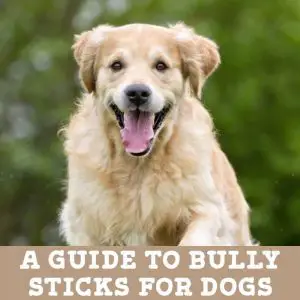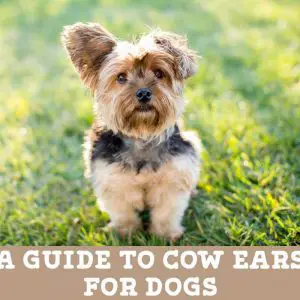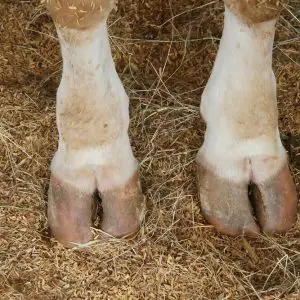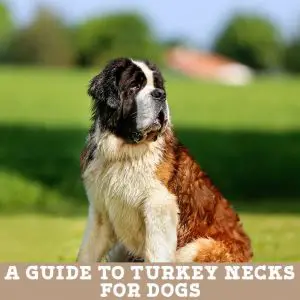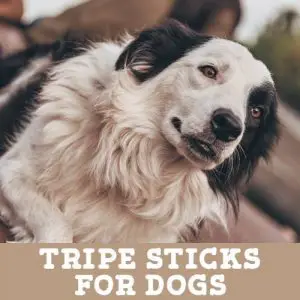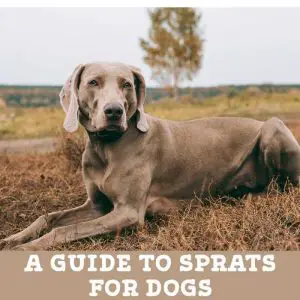Are you looking for a chew which is natural, nutritious, low in fat and long lasting (even for active chewers)? Buffalo horns are becoming an increasingly popular dog treat and could well be what you’re looking for!
This article goes into detail about buffalo horns for dogs; where they come from, their benefits, their risks, and their alternatives. So, keep reading if you are interested in trying your dog on buffalo horns.
Key facts
Buffalo horns are excellent for dental health and relieving anxiety through chewing.
Always supervise your dog when he has a buffalo horn to minimise the risk of swallowing splinters or pieces.
If your dog is chewing it intensely, take it away to prevent tooth fractures.
What are Buffalo Horns?
There are two types of buffalo in the world; water buffalo and African buffalo. Most buffalo horn treats for dogs come from water buffalo. These are usually farmed water buffalo, who are free range and grass fed.
Horns are sometimes confused with antlers, but they are actually completely different. A horn has a bone core, which is covered in keratin (the same substance that our fingernails are made of). They last the lifetime of the animal. Antlers however, start as cartilage, and gradually mineralise over the course of a few months. After the breeding season, the antlers shed, and new ones grow the following year.
Don’t worry, despite horns not being shed, buffalo are not slaughtered for their horns alone. The horns are a by-product, and are harvested to ensure that no part of the animal goes to waste. After they are harvested, they are cleaned, soaked in hot water to release/remove the inner core, then sanded to remove any sharp edges, covered in natural sunflower oil and then sun/air dried.
Benefits of Buffalo Horns for Dogs
Key benefits
Dental Health
Great for removing plaque and keeping your dog’s teeth in great shape.
Mental Health
Endorphins released when chewing have a relaxing effect, especially great for anxious dogs.
Low Fat
High in protein and low in fat, these chews are a great option for dogs that are struggling with their waistlines.
Nutrients
They contain calcium & phosphorus which help promote healthy bones and muscles.
Dental Care
The main health benefit for buffalo horns is their contribution to dental care. They promote good dental hygiene, through scraping off plaque as your dog chews on it. If plaque builds up on the teeth, it can lead to wobbly teeth and inflamed gums, so preventing this will keep your dog’s mouth comfortable and healthy. Buffalo horns can therefore keep your dog’s teeth pearly white and breath smelling fresh due to the reduction in plaque.
Low Fat
Buffalo horns are nutritious treats which are high in protein and low in fat. This makes them absolutely ideal for dogs who are struggling with their waistline, which is a surprising percentage of the dog population. They are also high in calcium and phosphorus, which are vital for healthy, strong bones and muscles. As a result, buffalo horns can be an excellent addition to your dog’s diet.
Long Lasting
Finally, buffalo horns are long lasting chews which can help reduce anxiety for your dog. Chewing releases endorphins, which in turn helps your dog to feel happy, so having something to chew on in certain situations may help your dog cope. This is perfect for stressful situations such as when there are visitors in the house, fireworks going on outside or when a house-sitter is looking after your dog while you are away.
Downsides & Risks of Buffalo Horns for Dogs
Some Minor Risks
Heavy chewers may splinter a buffalo horn (which could also cut them), break off chunks (risking blockage) or break their teeth. If your dog is a heavy chewer you may want to find an alternative treat.
Breaking Teeth
Like many natural treats, buffalo horns can come with some risks. They are very hard and therefore there is a risk of breaking teeth if your dog chews on it too intensely. Broken teeth are a problem because in the centre of the tooth is the pulp and full of nerves. Therefore, broken teeth can be very painful.
Splinters & Chunks
Another potential risk is if the horn splinters or if pieces break off (which can happen). If this happens there’s a risk of cutting your dog’s mouth and, if pieces are swallowed, they can cause blockages and trauma to the guts.
These issues can be mitigated through ensuring your dog is supervised when they are chewing a buffalo horn. If any sharp pieces, or pieces small enough to be swallowed, break off, they should be thrown away immediately.
Also, if you buy a horn which is fairly thick, pieces are less likely to break off and splinter. In addition to this, large dogs, or dogs with particularly powerful jaws, may cause the horn to splinter and crack more easily than smaller dogs. So, it may be a good idea to seek alternatives for these types of dogs, such as deer antlers or chew toys, such as Kong® toys.
Sharp Points
Buffalo horns can also be purchased with or without the point. The point isn’t often sharp, but depending on the size of the horn, it may curl around and be close to your dog’s eye when he’s chewing. You can buy the horn without the point for ease of mind, or alternatively, choose a horn with less of a curl. A buffalo horn without the point, will still benefit your dog’s teeth as he chews.
Buffalo Horns for Puppies?
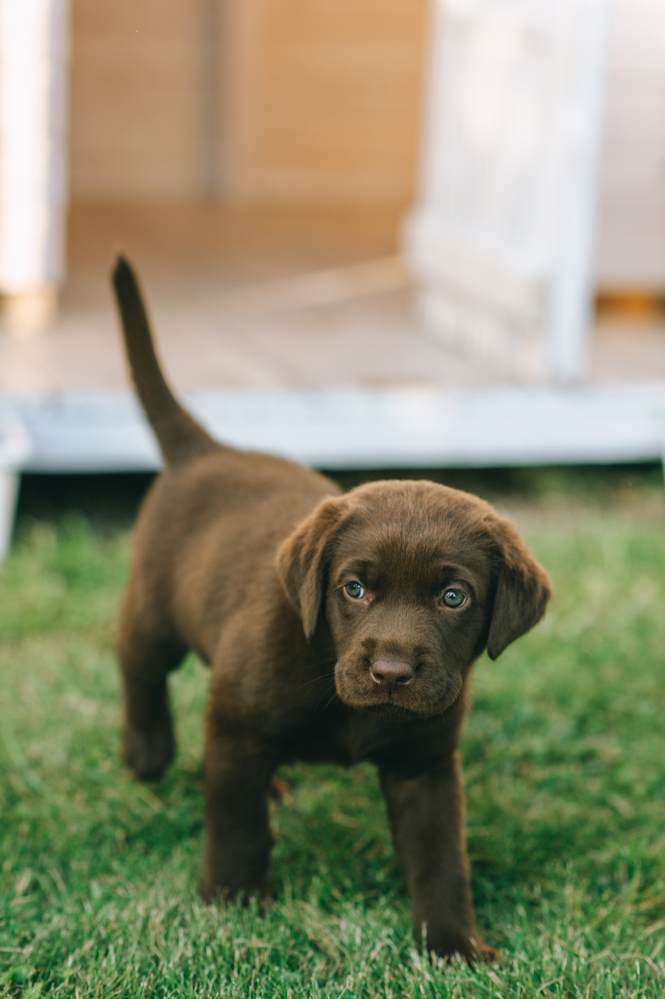
It’s a good idea to avoid giving your puppy buffalo horns while they still have their deciduous teeth. Puppy teeth are more fragile than adult teeth, and therefore at a higher risk of breaking when chewing on hard things. Your puppy is certainly going to want to chew on objects when he is teething, but alternatives to buffalo horns should be considered, which are listed further down.
Alternatives to Buffalo Horn
If you are looking for other alternatives to buffalo horn which have fewer risks, or also help with dental hygiene or stress, you might want to consider one of the following alternatives:
Antlers
These are an excellent alternative for buffalo horns, as they are natural, long-lasting and very beneficial for dental hygiene. They are less processed than buffalo horns, and therefore they are a little softer and are less likely to cause tooth fractures. They also do not break or splinter.
Knuckle bones
These are natural treats, much like buffalo horns, and are great for your dog’s teeth and enjoyment. They do, however, run the risk of splintering or breaking, and can lead to blockages if swallowed. Also, they smell much stronger than buffalo horns.
Dental chews
If you want to keep your dog’s teeth healthy, dental chews have been specifically formulated to do this, however they do add calories to your dog’s daily intake, and most dogs eat them extremely quickly.
Chew toys such as Kong
These can be filled with food such as wet dog food, pate, or peanut butter and allows your dog to be distracted by chewing on it for hours. Like buffalo horns, this helps to relieve anxiety.
FAQs
The main health benefit for buffalo horns is their contribution to dental care. They promote good dental hygiene, through scraping off plaque as your dog chews on it.
Buffalo horns are generally considered a safe treat but there are risks which include broken teeth or cuts if the horn splinters. Maybe one to avoid for heavy chewers. Also try to buy thick horns and supervise your dog during chewing sessions.
Buffalo horns generally aren’t greasy or slimy, but they can be a little smelly. They give off a stronger smell when being chewed, and people with sensitive noses may not tolerate it well. It isn’t so much that it is a strong or pungent smell, but it is more of an unusual, earthy, animal-like smell, and so to those people who do not spend a long time out in the countryside, it may stand out.
Buffalo horns are long-lasting treats, which can last weeks and potentially months. It entirely depends on the enthusiasm of your dog! It is helpful to be able to rely on a buffalo horn lasting your dog more than a few minutes, if you need him to be distracted for a while. In comparison to similar treats, they will last longer than rawhide chews, but not as long as antlers. The great thing about them lasting so long, is that over time they are very affordable.
Since buffalo horns are low in fat and do not make up many calories in the diet, you can allow your dog some time chewing on one several times per week. If your dog is an intense chewer, he might get through it very quickly and risk breaking his teeth. If this sounds like your dog, buffalo horns should not be given frequently or for long periods of time, or you should consider one of the alternatives listed below.



